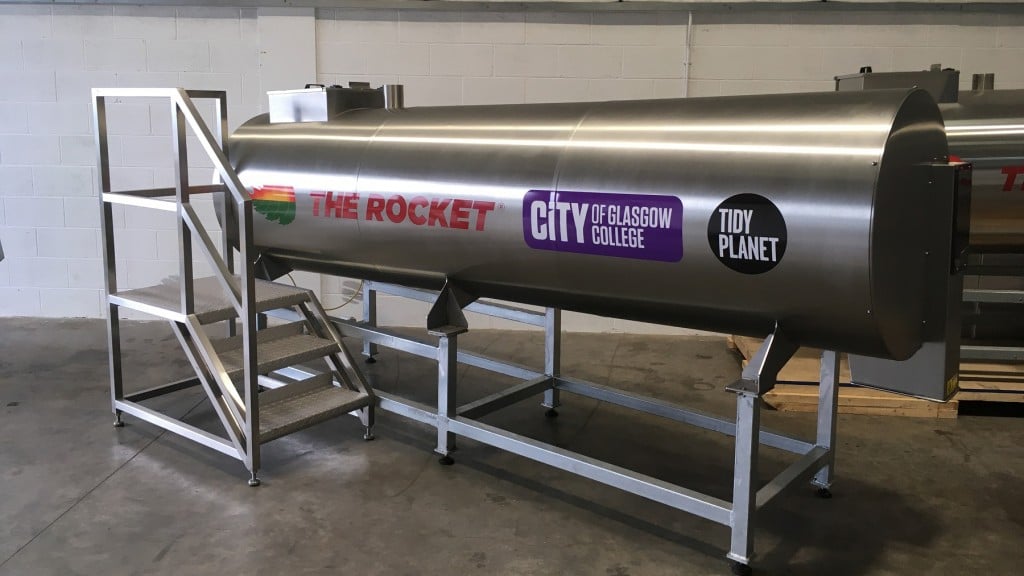
City of Glasgow College has invested in equipment to compost an estimated 26 tonnes of food waste per year, on site. The A900 Rocket Composter, from organic waste and Waste-to-Energy solutions firm Tidy Planet, will enable the college to process its food waste at source.
It will also reduce the twin site super campus' carbon emissions - omitting the need for weekly food waste disposal truck visits, which previously collected the material.
Commenting on the project, Fergal McCauley, head of facilities management at City of Glasgow College, said: "We're passionate about sustainability and are always searching for innovative ways to close the waste management loop - an ethos which is the driving force behind the investment."
In Scotland, it's mandatory to send food wastes for Anaerobic Digestion (AD) or off-site composting, but the college sought a greener alternative which allowed it to cut out the transportation ‘middlemen' and create a valuable compost resource which it can re-use on site in its gardens.
Fergal continued: "Prior to being able to compost on site, we always sent our food wastes for AD to be recovered. But with the Rocket Composter, we're going one step higher up in the Waste Hierarchy and recycling them on site, allowing us to autonomously reduce our carbon footprint, as well as our expenditure on disposal trucks."
Huw Crampton, sales manager and composting expert at Tidy Planet, added: "We've worked with many institutions not just across the country but around the world, helping them to implement composting into their waste management strategies - and this is our third project in Scotland this year. Even with the pandemic going on, the country's waste still needs dealing with.
"The Waste Hierarchy is there to help organisations do ‘the better thing' when it comes to dealing with their wastes - to avoid them being landfilled or incinerated without energy recovery, and it's great to be working with this major Scottish college to streamline its operations and make them more sustainable for the future."
The new process will see food waste collected by staff in the on-campus kitchens then processed through their dewatering system, before the substance is fed into the composter to create a nutritious compost resource, in 14 days.
"Entities of all sizes - and from various sectors - are increasingly trying to ‘do their bit' when it comes to the present and future welfare of our planet, but it's only by closing the loop on site that both environmental and bottom-line benefits can be better controlled," Huw continued.
"Recycling rate and zero landfill are big topics in industry, and have been for a long time, but maybe there should be a new category that more businesses are interested in - ‘recycled at source,' helping them to maximise resource potential and speed up the waste-handling process."



